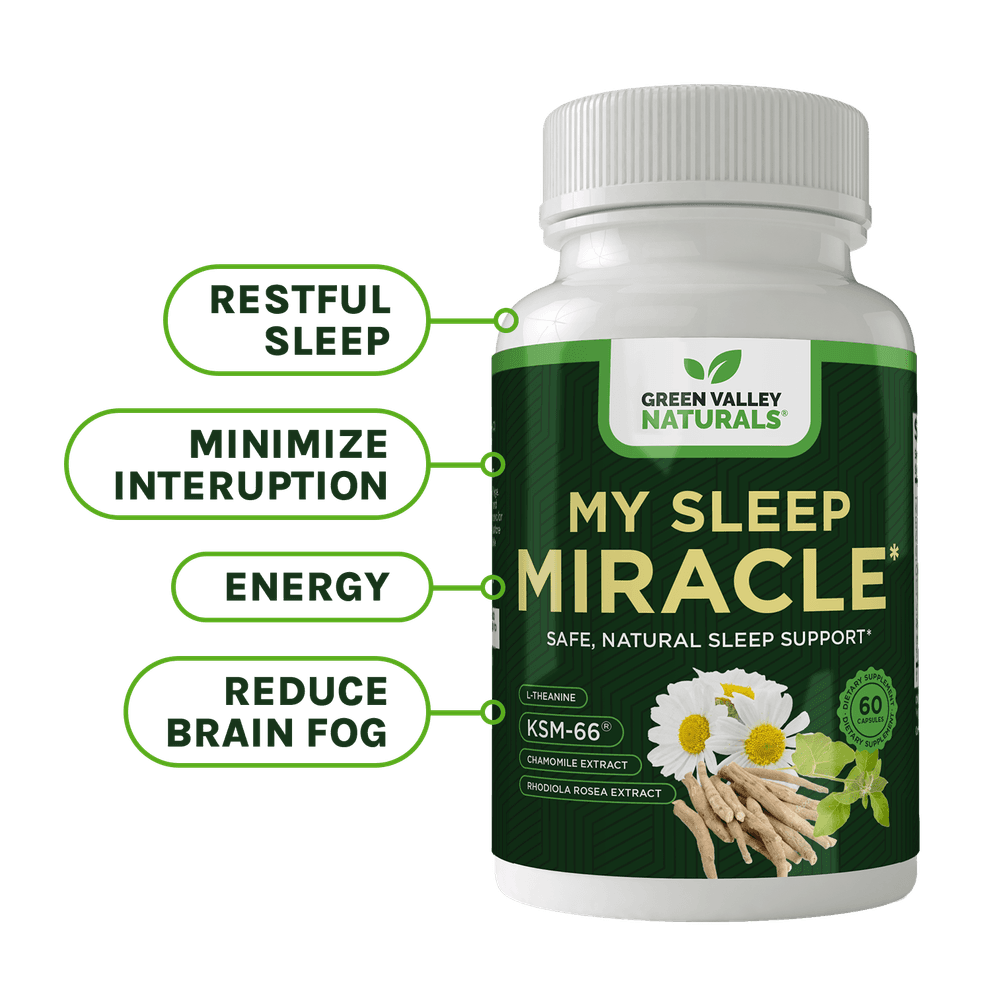
About 80 years ago, when vitamin research was in its infancy, scientists began studying vitamin C.
They discovered a disease called scurvy that resulted from vitamin C deficiency, and wanted to know just how much vitamin C was necessary for prevention.
Key Takeaways
- Vitamin C is crucial for immune cell function and can support heart health by improving blood flow and lowering blood pressure.
- Higher levels of vitamin C have been linked to lower risks of breast cancer, diabetes, and cognitive decline.
- Adequate vitamin C intake is associated with better muscle mass retention in older adults and improved brain health, potentially lowering the risk of Alzheimer's.
Vitamin C and Scurvy
Their early research revealed this ordinary vitamin’s critical importance to human health. Ironically, their study laid the groundwork for today’s recommended daily allowance (RDA) of vitamin C which, unfortunately, is woefully off base. Especially now that even more health benefits of vitamin C are being discovered…
Back in 1940 a team of scientists purposely induced a vitamin C deficiency in test subjects for nine months to learn how to prevent scurvy. It was a gruesome test – one that under modern investigative standards would never be allowed to happen today (we hope!).
Vitamin C Deficiency
Deprived of vitamin C, people felt constantly tired, their skin bruised easily, their gums were swollen and bleeding, and they suffered joint pain along with depression.
Some of the people in the test even developed life-threatening heart problems. (Luckily, they recovered after the study was over. Although it took a long time.)
This isn’t surprising since we now know that vitamin C is the primary water-soluble antioxidant in the body. Vitamin C protects proteins, lipids (fats), carbohydrates, and nucleic acids (DNA and RNA), from damage by free radicals and reactive oxygen species (ROS) that are generated during normal metabolism, by active immune cells, and through exposure to toxins and pollutants.
Vitamin C also helps extend the life of other antioxidants in the body through a process called redox recycling. For example, vitamin C is known to regenerate vitamin E.
Setting the RDA For Vitamin C
The irony of the 1940 study, however, was that even though scientists witnessed firsthand the importance of vitamin C, they decided humans can get by on a mere ten mg of vitamin C a day.1 That’s not even close to enough to “get by on" much less maintain a healthy body!
Today the RDA for vitamin C is 75 mg for women and 90 mg for men (recently increased to match the Food and Nutrition Board of the Institute of Medicine's recommendations), while the World Health Organization recommends 45 mg—and both are still not enough.2
Recently, the folks at the University of Washington – and other institutions – have been taking a deeper dive into how the body uses vitamin C and some are calling for an increase in daily supplementation of vitamin C.
According to these researchers, that old study of vitamin C demonstrates that we need at least 95 mg daily of vitamin C to stay healthy.3
And, every year, research shows new, important functions for vitamin C.
Keeping the Body Functioning Better
Recent research into the importance of vitamin C in the fight against aging and illness has revealed some amazing findings. For example, vitamin C:
- Helps the immune system function correctly: Laboratory tests at the La Jolla Institute of Immunology show that vitamin C is necessary for the creation and proper function of the type of immune cells (called T regs) that can protect you from autoimmune diseases like type-1 diabetes, multiple sclerosis, etc.). These researchers say population studies should be done to see if low levels of vitamin C are linked to high levels of autoimmune diseases (which is what they expect in view of what they’ve already learned). They also note that being low in vitamin C increases the risk for blood cancer.
- Helps to keep gums healthy: In a study of what causes bleeding gums, the Washington researchers have uncovered evidence that a lack of vitamin C is frequently to blame – a deficiency that is often overlooked.4 “When you see your gums bleed, the first thing you should think about is not, I should brush more. You should try to figure out why your gums are bleeding. And vitamin C deficiency is one possible reason,” says researcher Philippe Hujoel.
- May protect the heart in people with severe COVID-19 infections: A study in Asia found that high doses of intravenous vitamin C could reduce covid-related hyperinflammation and lower the risk for cardiac damage in people hospitalized for coronavirus.5
- Improves blood flow: A 2014 meta-analysis of 44 randomized controlled trials in subjects with or without chronic diseases summarized the effect of supplemental vitamin C on endothelial function—the function of the inner lining of blood vessels. Short-term supplementation with vitamin C improved blood flow in subjects with heart failure, atherosclerosis, or diabetes mellitus. It's no wonder that vitamin C is one of the top supplements for healthy aging.
- Supports healthy blood pressure: A 15-year follow-up of about 2,500 participants in the Coronary Artery Risk Development in Young Adults (CARDIA) study found that folks with higher blood levels of vitamin C and a higher diet quality score were less likely to develop high blood pressure.6
- Lowers risk of breast cancer: In the Nurses' Health Study, premenopausal women with a family history of breast cancer who consumed an average of 205 mg/day of vitamin C from food had a 63 percent lower risk of breast cancer than those who consumed an average of 70 mg/day.7 Similar results have been found in studies of vitamin C for the prevention of colon cancer, stomach cancer and non-Hodgkin’s lymphoma.8 I should also note that intravenous vitamin C is a first-line treatment against cancer for many alternative doctors.
- Prevents diabetes: Several cross-sectional studies reported inverse association between circulating vitamin C concentrations and markers of insulin resistance or glucose intolerance, such as glycated hemoglobin (HbA1c) concentration, which are indicators of diabetes risk.9
- Supports healthy brain function: Some observational studies reported lower vitamin C concentrations in Alzheimer’s disease patients compared to cognitively healthy subjects. Researchers also found better cognitive function and lower risk of cognitive impairment in those people with higher vitamin C levels.10
- Protects against air pollution: Studies show that vitamin C can protect the lungs against damage from air pollution.
- Maintains muscle mass: A study in England shows that vitamin C could be the key ingredient to keeping your muscles healthier as you age so you don’t become decrepit and frail. According to researcher Ailsa Welch, "People over 50 lose up to one percent of their skeletal muscle mass each year, and this loss is thought to affect more than 50 million people worldwide. It's a big problem, because it can lead to frailty and other poor outcomes such as sarcopenia, physical disability, type-2 diabetes, reduced quality of life and death." Dr. Welch’s research, which analyzed the health of about 13,000 people aged 42 to 82, shows that folks who consume the highest amounts of vitamin C and have the highest blood levels possess the most muscle tissue.11
Our Takeaway
These are only the beginning of the health benefits of Vitamin C. And frankly, it’s one vitamin that most of us can use more of. One way is to drink more vitamin C by enjoying fruit juice such as orange juice and cherry juice, smoothies and vegetable juices. These are rich in vitamin C and other beneficial antioxidants.
One study shows that 59 percent of men get less than 90 mg a day of vitamin C and 47 percent of women get less than 80 mg a day of vitamin C.12
But how much more vitamin C do you need? Everyone has a different opinion.
The folks at the Linus Pauling Institute at Oregon State University believe young adults should get around 200 mg. (Dr. Linus Pauling, you may recall, was a pioneer in vitamin C research.) For older people, who generally don’t absorb this nutrient very well, they recommend 400 mg.13 However, many people take far more than this daily. Especially people who are battling health problems.
While I wouldn’t go crazy mega-dosing with vitamin C, there’s not much to worry about in taking larger doses. If you take too much oral vitamin C the usual side effect is stomach-ache and diarrhea, which resolves when you stop taking the high-dose vitamin C. Some alternative doctors call this reaching “bowel tolerance”, and bowel tolerance is, of course, different for everyone.
According to the Linus Pauling Institute, there’s no reliable scientific evidence that doses of vitamin C up to 10 g/day (10,000 mg/day) in adults are toxic or detrimental to health.
Summary
Vitamin C is essential for overall health, playing roles far beyond preventing scurvy. Research now links it to benefits like immune support, reducing inflammation, protecting against certain cancers, and even maintaining muscle mass. Despite current recommendations, many experts believe that higher daily doses of vitamin C may offer significant protective effects against age-related diseases and chronic health conditions.
Frequently Asked Questions
What are the recommended daily amounts of vitamin C?
The RDA for vitamin C is 75 mg for women and 90 mg for men. However, many experts suggest that these levels may need to be higher to provide maximum health benefits.
Can vitamin C help prevent chronic diseases?
Yes, vitamin C is linked to a reduced risk of diseases like heart disease, diabetes, and certain cancers, due to its antioxidant properties and support for immune function.
How does vitamin C support the immune system?
Vitamin C is essential for the production and function of T-cells and other immune cells, helping the body fend off infections and potentially reducing inflammation.
Is it safe to take large doses of vitamin C?
While very high doses can cause digestive upset, research indicates that daily doses up to 10,000 mg are generally safe for most adults.
What foods are high in vitamin C?
Citrus fruits, bell peppers, strawberries, kiwi, and dark leafy greens are all excellent sources of vitamin C. Incorporating these foods into your diet can help maintain adequate levels.
- Sorby Vitamin C trial. https://www.cambridge.org/core/services/aop-cambridge-core/content/view/3ECC9D3AFDC4A83DC4FBF48B48721E40/S0029665153000553a.pdf/sheffield_experiment_on_the_vitamin_c_requirement_of_human_adults.pdf
- Joint FAO/WHO Expert Consultation on Human Vitamin and Mineral Requirements (1998 : Bangkok, Thailand). Vitamin and mineral requirements in human nutrition : report of a joint FAO/WHO expert consultation, Bangkok, Thailand, 21–30 September 1998.
- National Institutes of Health: Vitamin C.
- Hujoel PP, Kato T, Hujoel IA, Hujoel MLA. Bleeding tendency and ascorbic acid requirements: systematic review and meta-analysis of clinical trials. Nutr Rev. 2021 Aug 9;79(9):964-975. doi: 10.1093/nutrit/nuaa115. PMID: 33517432.
- Xia G, Qin B, Ma C, Zhu Y, Zheng Q. High-dose vitamin C ameliorates cardiac injury in COVID-19 pandemic: a retrospective cohort study. Aging (Albany NY). 2021 Sep 9;13(17):20906-20914. doi: 10.18632/aging.203503. Epub 2021 Sep 9. PMID: 34499050; PMCID: PMC8457586.
- Buijsse B, Jacobs DR, Jr., Steffen LM, Kromhout D, Gross MD. Plasma ascorbic acid, a priori diet quality score, and incident hypertension: a prospective cohort study. PLoS One. 2015;10(12):e0144920. https://pubmed.ncbi.nlm.nih.gov/26683190/
- Zhang S, Hunter DJ, Forman MR, et al. Dietary carotenoids and vitamins A, C, and E and risk of breast cancer. J Natl Cancer Inst. 1999;91(6):547-556. https://pubmed.ncbi.nlm.nih.gov/10088626/
- Buijsse B, Jacobs DR Jr, Steffen LM, Kromhout D, Gross MD. Plasma Ascorbic Acid, A Priori Diet Quality Score, and Incident Hypertension: A Prospective Cohort Study. PLoS One. 2015 Dec 18;10(12):e0144920. doi: 10.1371/journal.pone.0144920. PMID: 26683190; PMCID: PMC4684305. . https://pubmed.ncbi.nlm.nih.gov/26683190/
- Carter P, Gray LJ, Troughton J, Khunti K, Davies MJ. Fruit and vegetable intake and incidence of type 2 diabetes mellitus: systematic review and meta-analysis. BMJ. 2010;341:c4229. https://pubmed.ncbi.nlm.nih.gov/20724400/
- Harrison J, Rentz DM, McLaughlin T, et al. Cognition in MCI and Alzheimer's disease: baseline data from a longitudinal study of the NTB. Clin Neuropsychol. 2014;28(2):252-268. https://pubmed.ncbi.nlm.nih.gov/24521259/
- Lewis LN, Hayhoe RPG, Mulligan AA, Luben RN, Khaw KT, Welch AA. Lower Dietary and Circulating Vitamin C in Middle- and Older-Aged Men and Women Are Associated with Lower Estimated Skeletal Muscle Mass. J Nutr. 2020 Oct 12;150(10):2789-2798. doi: 10.1093/jn/nxaa221. PMID: 32851397; PMCID: PMC7549302.
- Linus Pauling Institute Recommendation on Dietary Vitamin C intake.

